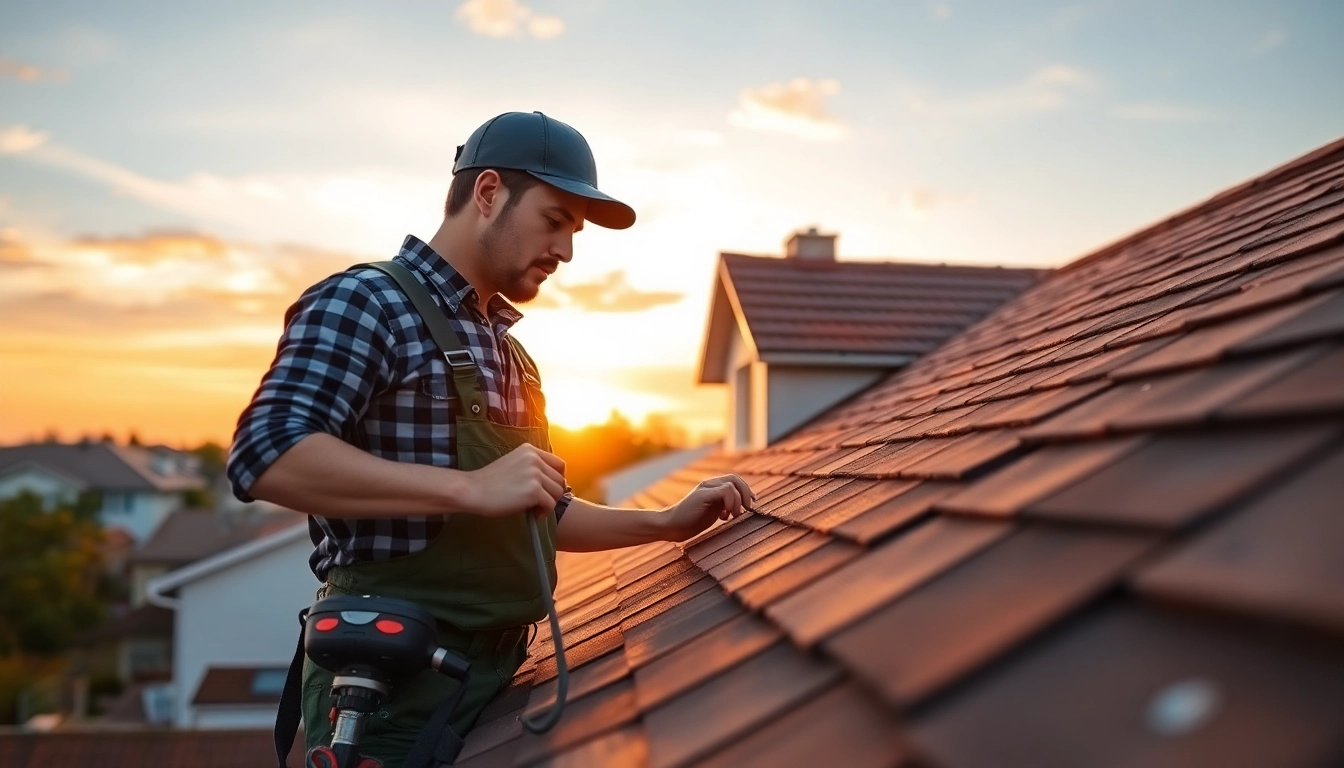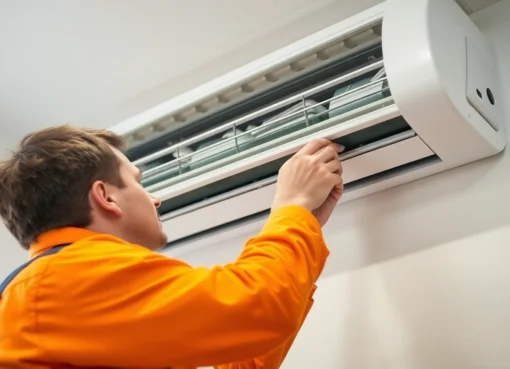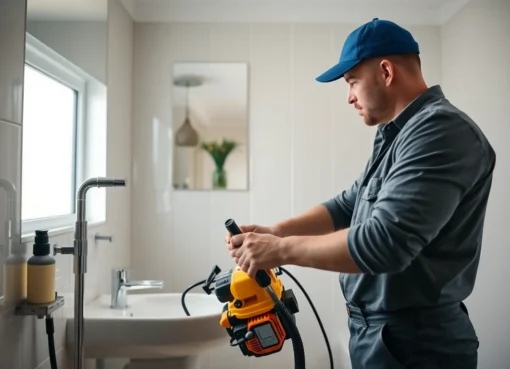Top-Rated Roofer Services in Peabody MA for Reliable Roof Repair & Installation

Understanding the Role of a Roofer in Home Maintenance
The integrity of a building’s structure heavily depends on the quality and durability of its roofing system. Beyond mere aesthetics, a well-maintained roof is crucial to protect interiors from weather elements, prevent structural damages, and ensure safety for occupants. At the heart of this essential component is the professional roofer—a skilled tradesperson who specializes in constructing, repairing, and maintaining roofs. Whether you’re a homeowner in Peabody MA seeking reliable services or an industry beginner wanting to understand the craft, appreciating what a roofer does is key to making informed decisions about your property’s protection. If you’re in need of expert assistance, consider visiting roofer for trusted local services.
What Do Roofers Do? Key Responsibilities and Skills
Roofers play a vital role in the construction and maintenance of residential, commercial, and industrial buildings. Their primary responsibilities include:
- Roof Installation: Installing new roofs on new constructions or after demolitions. This involves selecting suitable materials, ensuring proper measurements, and executing precise installation procedures.
- Roof Repairs: Addressing leaks, broken shingles, damaged flashing, or compromised roofing components. Timely repairs prevent minor issues from escalating into costly damages.
- Roof Replacements: Removing old, damaged, or outdated roofing systems and replacing them with new, durable materials that meet current standards.
- Inspection and Maintenance: Conducting routine inspections to identify potential problems and performing preventive maintenance to extend roof lifespan.
To perform these duties effectively, roofers require a specific set of skills, including:
- Mathematical proficiency for accurate measurements and calculations
- Understanding of safety protocols, especially when working at heights
- Knowledge of various roofing materials and their appropriate applications
- Physical stamina and strength for handling heavy materials and working in diverse weather conditions
- Problem-solving skills to diagnose issues and determine effective solutions
Mastery of safety is paramount, as roofing is inherently hazardous. Proper use of harnesses, scaffolding, and other safety equipment reduces the risk of accidents. A licensed, experienced roofer transforms a complex process into a reliable, long-lasting solution tailored to each client’s needs.
Types of Roofing Materials Used by Professional Roofers
The versatility of roofing materials allows for tailored solutions based on budget, aesthetic preferences, climatic conditions, and building architecture. Some prevalent materials include:
- Asphalt Shingles: The most popular choice for residential roofs due to affordability, ease of installation, and a wide variety of styles and colors.
- Metal Roofing: Comprising steel, aluminum, or copper, metal roofs are celebrated for durability, energy efficiency, and minimal maintenance. Ideal for both residential and commercial settings.
- Single-Ply Membranes: Often used in commercial roofing, including TPO (thermoplastic olefin) and PVC (polyvinyl chloride), offering excellent weather resistance and flexibility.
- Bitumen Roofing: Commonly used in flat roofing applications, featuring built-up roofing systems with multiple layers for enhanced waterproofing.
- Slate and Clay Tiles: Classic, highly durable, and aesthetically appealing, these are often found on upscale residential properties.
- Wood Shingles and Shakes: Providing a rustic appearance, but requiring more maintenance and specialized installation skills.
The choice of material impacts the longevity, cost, and overall performance of the roof. A professional roofer provides expert guidance on selecting the optimal material for specific building requirements, climate considerations, and budget constraints.
Typical Roofing Projects: Repairs, Replacements, and Installations
Roofing projects span a range of tasks, each demanding specific skills and planning:
Roof Repairs
Repairs are the most frequent and essential tasks performed by roofers. Common issues include missing or broken shingles, leaks due to damaged flashing, ponding water in flat roofs, or deterioration caused by weather conditions. Skilled roofers promptly diagnose the problem, source the appropriate materials, and execute repairs minimizing future risks.
Roof Replacements
When repairs are no longer cost-effective or the roof has exceeded its lifespan, a full replacement is necessary. This involves removing the existing roofing, inspecting the underlying structure, repairing any damage, and installing a new system. Proper insulation, ventilation, and waterproofing are integral to a successful replacement.
New Roof Installations
New constructions or extensive renovations require fresh roofing installations. This process begins at framing and sheathing, followed by the installation of underlayment, flashing, and finally, the chosen roofing material. Attention to detail during this phase ensures longevity and performance.
Each project type requires tailored approaches, adherence to building codes, safety standards, and the use of high-quality materials to guarantee durability and customer satisfaction.
Choosing the Right Roofer: Tips for Homeowners in Peabody MA
How to Find Accredited and Trustworthy Roofing Contractors
Selecting a qualified roofer is crucial for a successful project. Start by seeking locally established contractors with positive reviews and proven track records. In Peabody MA, look for certified professionals affiliated with reputable industry organizations, such as the National Roofing Contractors Association (NRCA) or accredited by the Better Business Bureau. Credentials such as licenses, insurance, and warranties further validate a contractor’s legitimacy.
Utilize resources like the BBB’s directory of roofing contractors to compare providers, read reviews, and verify their credentials. A transparent contractor openly discusses project timelines, costs, and materials.
Questions to Ask Before Hiring a Roofer
To ensure you hire a reputable professional, prepare a checklist of essential questions:
- Are you licensed and insured to operate in Peabody MA?
- Can you provide recent references from local clients?
- What materials do you recommend for my specific roof type and climate?
- How long will the project take, and what is the projected timeline?
- Do you offer warranties for labor and materials?
- What safety protocols will you implement during the work?
- How will you handle unforeseen issues or additional repairs?
Clear communication and detailed estimates prevent misunderstandings and establish a solid foundation for a successful project.
Signs You’re Due for a Roof Inspection and Repair
Regular inspections are vital to detect early damage, especially after severe weather events common in the Peabody area. Indicators that your roof may require professional attention include:
- Missing or broken shingles visible from the ground
- Granules collecting in gutters
- Dark streaks or moss growth on roofing surfaces
- Water stains or leaks inside your home
- Sagging or uneven roof surfaces
- Excessive shingle curling or cracking
Conducting bi-annual inspections, ideally in fall and spring, extends your roof’s life and helps avoid costly emergency repairs.
Top Roofing Trends and Technologies in 2024
Eco-Friendly Roofing Options and Materials
Sustainability continues to shape the industry. In 2024, homeowners and contractors are increasingly opting for eco-friendly solutions, such as:
- Green Roofs: Incorporating vegetative layers that improve insulation, reduce heat islands, and support biodiversity.
- Cool Roofing Materials: Reflective surfaces, such as white or light-colored shingles and coatings, reduce energy costs by reflecting sunlight.
- Recycled Materials: Using reclaimed shingles or metal components minimizes waste and environmental impact.
- Solar-Integrated Roofs: Combining photovoltaic panels with roofing systems to generate renewable energy seamlessly.
These options not only contribute to environmental conservation but also can lead to significant savings on energy bills, making them attractive investments.
Innovative Roofing Techniques for Durability and Efficiency
Technological advancements have enhanced roofing performance. Notable innovations include:
- Self-Healing Coatings: materials that can repair minor cracks and damages automatically, extending lifespan.
- Enhanced Insulation Layers: Modern roofing systems incorporate superior insulative barriers, improving energy efficiency.
- Advanced Underlayments and Membranes: technologies that provide superior waterproofing and vapor barriers, especially in flat roofing applications.
- Modular Roofing Components: prefabricated sections facilitate faster installation and easier future repairs.
These techniques improve longevity, reduce maintenance costs, and advance sustainability efforts.
Cost-Saving Strategies for Roofing Projects
Navigating roofing costs can be complex, but strategic planning helps manage expenses. Consider:
- Timing: Scheduling repairs or replacements during off-peak seasons may reduce labor costs.
- Material Selection: Opting for durable, cost-effective materials suited to your climate minimizes long-term expenses.
- Detailed Quotes: Obtaining multiple bids ensures competitive pricing and clarity on included services.
- Tax Incentives: Exploring local, state, or federal rebates for eco-friendly options can offset initial investments.
An experienced roofer provides expert advice on maximizing value without compromising quality.
Cost and Budgeting for Professional Roofing Services
Average Costs for Roof Repairs and Replacements in Peabody MA
Understanding local price ranges aids in realistic budgeting. In Peabody MA, typical costs include:
- Basic Roof Repairs: $300 to $1,500, depending on the extent of damage
- Full Roof Replacements: $7,000 to $20,000, varying by material, size, and complexity
- New Roof Installations: comparable to replacement costs, potentially more if customized features are added
Additional factors influencing costs include roof pitch, accessibility, material prices, and local labor rates.
Understanding Quotes and Ensuring Fair Pricing
When evaluating bids, review comprehensive quotes that detail:
- Material specifications and warranties
- Labor costs and project timeline
- Permitting and disposal fees
- Post-installation cleanup services
Asking for references and inspecting previous work helps validate estimates and avoid hidden charges. A transparent, licensed contractor prioritizes fair pricing and quality outcomes.
Financial Assistance and Insurance Coverage for Roofing
Many homeowners qualify for financial aid or insurance claims to offset roofing expenses. Insurance typically covers repair costs related to storm damage or accidental incidents. To optimize benefits:
- Document damages thoroughly with photographs and inspection reports
- Review your policy for coverage details and deductibles
- Work with an experienced roofer who can assist in claims processing and inspection reports
Additionally, some contractors offer financing plans or payment options to ease immediate financial burdens.
Maintaining and Extending Your Roof’s Lifespan
Routine Inspection and Maintenance Tips
Preventive maintenance is the most cost-effective approach to prolonging your roof’s life. Regularly scheduled inspections—preferably twice a year—should include checking for:
- Loose, missing, or damaged shingles
- Signs of water infiltration or leaks inside the attic or ceilings
- Damage to flashing, gutters, and downspouts
- Accumulation of debris or moss
- Sagging or uneven surface indications
Clearing gutters, removing debris, and trimming overhanging branches help prevent damage and maintain proper drainage.
Do-It-Yourself vs. Hiring Professional Roofers
While minor maintenance tasks like gutter cleaning or debris removal are manageable for homeowners, most roofing work—especially repairs, replacements, or work at heights—should be entrusted to professionals. DIY attempts without proper safety equipment can lead to accidents or further damage. Certified roofers possess specialized tools, techniques, and knowledge that ensure safety and quality results.
When in doubt, consulting a licensed roofer safeguards your investment and ensures compliance with local building codes.
When to Schedule a Roof Inspection for Maximum Longevity
The ideal times for professional inspections are during spring and fall, allowing early detection of damages caused by winter snow or summer storms. Additionally, after severe weather events such as hailstorms, high winds, or heavy rain, scheduling an immediate inspection helps catch potential issues before they escalate.
Routine inspections also improve the overall health of the roofing system, facilitating timely repairs and maintenance that significantly extend its service life.


